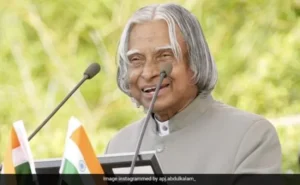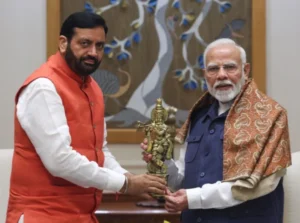The Most Difficult Challenge for The West in Ukraine is Convincing Putin that He is Losing
The key to ending the Ukrainian war is convincing Putin that he is losing. The West must endeavour to find a solution acceptable to Zelensky while also putting pressure on Putin to negotiate.
As the anniversary of Russia’s invasion of Ukraine approaches, US and Western leaders are ready to show their support for the conflict. The objective is to demonstrate NATO’s long-term commitment to fighting Moscow’s aggressiveness and securing a settlement in the area.
Top military and political leaders are warning that Russia cannot win the Ukrainian war and are increasing pressure on Moscow to negotiate. Russia has lost intellectually, operationally, and tactically, according to Chairman of the Joint Chiefs of Staff Mark Milley, while NATO Secretary General Jens Stoltenberg has declared that Putin must recognize that he cannot win.
Julianne Smith, the US ambassador to NATO, also confirmed that the US is putting pressure on Russia to adjust Putin’s geopolitical calculation. These statements show a strong front among Western leaders and NATO, as well as their commitment to end the violence.
Retired General David Petraeus of the United States forecasts a negotiated solution to the Ukrainian conflict once Putin understands the war’s unsustainability on the battlefield and the home front. This highlights the significance of maintaining pressure on Moscow to force a resolution to the war.
While Western leaders continue to put pressure on Russia to end the war in Ukraine, Vice President Kamala Harris will attend the Munich Security Conference this week, and President Joseph Biden will visit Poland and a frontline NATO state next week. These actions will build on Biden’s history of strong Western alliance leadership since the Cold War’s end.
Viewing The War From Putin’s Eyes
Regarding Putin’s attempts to undermine Ukrainian sovereignty and destroy the country’s relations with the West, he is already losing on an objective basis. His military objectives have backfired, causing Russia to become a pariah state, with its economy in shambles as a result of international sanctions. This highlights the significance of maintaining pressure on Moscow to seek a resolution to the Ukrainian crisis. Ukraine is now effectively a NATO client state, receiving support from the US and Europe as Putin is being considered a war criminal. Even if a cease-fire is achieved, Ukraine’s survival would almost likely need years of Western support.
While Western leaders have put pressure on Putin to negotiate a resolution to the Ukrainian crisis, it is important not to disregard Putin’s worldview. The Russian president sees the world through a different strategic and historical lens, and he has been known to act against the perceived interests of his country. This emphasises the important role of understanding Putin’s worldview and intentions in order to properly negotiate with Russia and stop the war in Ukraine.
After a year of losses and greater NATO military support, Russian President Vladimir Putin continues to send Russian convict recruits to fight in Ukraine. These recruits are being dispatched on pointless World War I-style advances, resulting in major Russian losses.
The continuing war between Russia and Ukraine is more than a simple geographical issue. It comes from Putin’s belief that Ukraine should not be considered a separate nation and should be integrated into Russia. Putin’s political survival is also linked to not being seen as weak, which complicates matters further. The West has promised to defend Ukraine, but Putin has been involved in this fight since 2014 when he annexed Crimea. This is a long-term problem that will need patience and perseverance on both sides.
Putin’s desire to keep Ukraine divided by maintaining a frozen conflict may be a realistic posture for him. His attitude to human suffering is clear, and he regards Russia’s geopolitical conflict with NATO as crucial to Russia’s reputation. The West’s commitment to a long-term solution is unclear. The question now is whether the West is willing to go the distance and continue to defend Ukraine in the face of Russia’s persistence.
A Crucial Stage in The War
The next phase of the war in Ukraine is essential as Russian soldiers prepare for a spring attack. The presence of Western tanks has given Ukraine hope that the situation may be turned. Because of President Biden’s leadership, NATO’s stability and staying strong have astonished sceptics. Yet, political shifts in Washington and its supporters might have an influence on Putin’s calculations. To settle the conflict and restore regional peace, the West must stay strong and committed to a long-term solution.
Even with a Democratic majority in the House and Senate, there remains doubt regarding the future of American aid to Ukraine. Several Republican lawmakers, like Matt Gaetz, are calling for a halt to aid and a peace agreement. While President Biden has demonstrated a commitment to Ukraine, it is unclear if the US can continue such aid packages permanently. The prospect of a Republican victory in the 2024 election might jeopardise American funding.
Which is why, while Ukraine’s supporters hope for victories on the battlefield, months of more bloodshed appear to be in the future.
According to recent press sources, the US and its allies do not expect substantial battle wins from Russia’s planned attack in Ukraine. There are also concerns regarding Ukraine’s capacity to breach Russian defences in the east and south. NATO Secretary General Jens Stoltenberg recently described the situation as a “grinding battle of attrition” and urged members to send supplies to Ukraine. These remarks highlight the difficulties of the situation and the need for continuing Western support. A long-term solution is required to restore regional peace and stability, avoid future human suffering, and protect Ukraine’s sovereignty.
Putin Believes That He is Not in a Losing Position
The lack of a diplomatic framework for ceasefire discussions suggests that Putin is not thinking about defeat or quitting the war.
Stoltenberg said on Wednesday that the situation is unlikely to change very soon.
According to NATO Secretary General Jens Stoltenberg, President Putin is not preparing for a negotiation, but rather conducting fresh offensives that target citizens, cities, and infrastructure.
At a Senate Armed Services Committee hearing on Wednesday, Fiona Hill, a Russia and Putin expert who worked in Trump’s White House, indicated that there are few signs that Putin’s drive is weakening.
The situation, according to Fiona Hill, is bad. Putin has received backing from a number of countries, including China. To effect change, nations such as China may need to convince Russia. The international community must band together and put pressure on Russia to find a diplomatic end to the situation and prevent it from growing further.
The idea of China asking Putin to end the conflict was always improbable, and recent events, such as the flying of a Chinese surveillance balloon across the US, have made the situation much more questionable.
Besides the potential embarrassment caused by Putin’s actions in Ukraine, China may find an opportunity in the United States’ concern with a proxy war against Russia. China may see the situation as an opportunity to gain an edge as it escalates its challenge to US power in Asia.
Wendy Sherman, the US Deputy Secretary of State, has warned China that supporting Putin’s aggressiveness in Ukraine can only lead to disappointment in the long term.
Sherman recently warned of the dangers of the US getting caught in the middle of strengthening connections between China and Russia while simultaneously fighting both states. The situation has the potential to become an “albatross around your neck.” It’s a complicated situation that needs cautious navigation and smart thinking.
According to analysts, Ukraine’s resistance to the Russian invasion would result in Putin’s strategic failure. This would also complicate matters for those who support the aggression.
There are no signs that Putin will back down or change his position on the war.

Continuing the achievement of the journey of effectiveness and credibility of more than 10 years in the career of journalism, as a woman journalist, I am Serving as the founder, promoter and editor of DiaryTimes with the trust and support of all. My credible coverage may not have given a big shape to the numbers, but my journey presents articles that make you aware of the exact and meaningful situations of Himachal’s politics, ground issues related to the public, business, tourism and the difficult geographical conditions of the state and financial awareness. DiaryTimes, full of the experience of my precise editorial expertise, is awakening the flame of credible journalism among all of you, so that the eternal flame of meaningful change can be lit in the life of the people of the state and the atrocities being committed against the people can be brought to the fore, I am motivated for that. If even a small change comes with the power of my journalism and the whole world becomes a witness to that issues, then I will consider myself fortunate.








